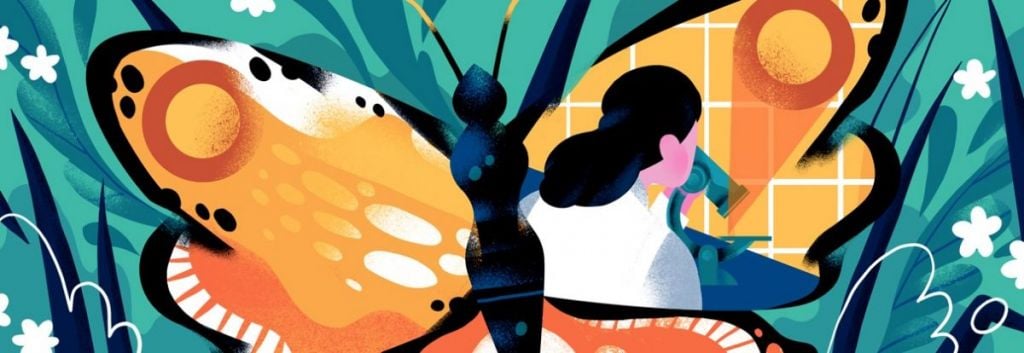In the fight against shrinking biodiversity, biotechnology could be a lifesaver. These European biotech initiatives are making a difference for wildlife biodiversity worldwide.
Human activity is having a massive impact on wildlife biodiversity. According to a global study, 75% of terrestrial ecosystems and 66% of marine ecosystems are severely altered. This threatens the extinction of one million species worldwide.
The world is awakening to the dangers of biodiversity loss, which can severely affect our health and livelihood. In this context, biotechnology is proving that we can reverse this trend, be it by directly protecting biodiversity or by reducing the pollution that destroys wildlife ecosystems. Here are some great examples of European biotech organizations that make a positive impact on the environment and its non-human inhabitants.
Bioclear Earth
Founded: 1988
Location: Groningen, The Netherlands
Bioclear Earth is working on innovative solutions for the recovery of natural ecosystems that are polluted with cleaners, cosmetics, and other toxic contaminants produced by industrial activity. Its expertise is tackling soil and water remediation.
Inspired by natural processes, the company manufactures biological solutions to decontaminate polluted soils. Bioclear Earth capitalizes on the ability of bacteria to degrade contaminants of all kinds and speed up the process of decontamination. It also provides consulting services for eco-friendly water management.
Pili
Founded: 2015
Location: Toulouse, France
The textile industry is one of the most polluting in the world. Companies in this industry are breaking records in greenhouse emissions, using toxic chemicals, and polluting soil and water, thus contributing to the destruction of fragile ecosystems.
Pili was born from the meeting of a biologist, a designer, and a financial analyst at a biohackerspace in Paris. The team tackles the use of toxic chemical pigments, which are responsible for large amounts of water pollution. The company produces long-lasting pigments that are compatible with the fashion industry practices using microbial fermentation. In brief, Pili transforms sugar into dyes with the help of engineered enzymes.
Frozen Ark
Founded: 2004
Location: Nottingham, UK
Founded by three scientists who specialize in genetics and zoology, Frozen Ark is a biobanking charity with the aim of preserving the Earth’s genetic heritage, constantly degrading with the ongoing loss of biodiversity. The biobank collects and preserves the DNA and cells of endangered species in tanks of liquid nitrogen.
Nowadays, over 700 samples are stored in the Frozen Ark, which is using cutting-edge technologies to preserve irreplaceable samples in the long-term. The goal is to help the conservation of endangered species and to be able to make use of their valuable genetic data for scientific research even if a species is lost.
INBIOM
Founded: 2019
Location: Tjele, Denmark
The Innovation Network for Biomass is a professional network that aims to unite scientists, companies, and public entities for the development of sustainable biomass-based technologies. The network is investing in a plethora of sectors, such as energy, environmental technology, and the food industry.
For instance, the network gave birth to a research program where scientists and farmers collaborated to breed mealworms for animal feed. This solution might be a sustainable alternative to soy, which causes deforestation and jeopardizes the biodiversity of the regions where it’s grown. The worms are fed organic waste, making it a great example of success towards building a circular economy.
Naturabiomat
Founded: 1997
Location: Schwaz, Austria
Every second, 50kg of plastics are pouring into the oceans, causing the destruction of marine ecosystems. Naturabiomat fights this by developing compostable and sustainable packaging for the food industry.
The company sells carrier bags made of corn and tomato starch, trays for fruits and vegetables made of sugarcane, and bin liners built of maize starch. Naturabiomat is an example of the potential of biotechnology when it comes to designing sustainable products for our daily lives.
Microgen Biotechnology
Founded: 2012
Location: Leinster, Ireland
Microgen Biotechnology focuses on decontaminating arable soils. This Irish biotech company targets international markets, especially China, where one-fifth of the farmland is polluted. The company uses microorganisms and plants to degrade toxic contaminants like oil sludge or petroleum hydrocarbons, which degrade the soil and severely impact biodiversity.
Microgen Biotechnology has built a library of microbes to facilitate the selection of those that will adapt best to the specific moisture, pH and temperature of the target soil.
Paques
Founded: 1960
Location: Palk, The Netherlands
Paques is working in collaboration with private companies and municipalities to reduce their water pollution and carbon footprint. The company provides wastewater processing systems that use bioreactors to optimize water purifying processes while delivering usable energy.
Paques works in a multitude of sectors, from beverages to the bioenergy sector. The company also helps municipalities to restore their infrastructure and reduce their environmental impact on the environment to contribute to the preservation of healthy ecosystems.
Bioinspir
Founded: 2019
Location: Boulogne Billancourt, France
Bioinspir is a startup born from a collaboration between academic scientists and entrepreneurs. The company employs the natural ability of certain plants to purify metallic and organic elements from water. Key catalysts obtained from the plants are then optimized and used to purify polluted water directly at industrial sites. Thus, cutting down the negative impact that water pollution has on biodiversity.
Biomasse Technology Group
Founded: 1987
Location: Enschede, The Netherlands
The Biomasse Technology Group (BTG) is composed of a variety of companies that specialize in the conversion of biomass into fuels and energy. These biofuels pollute less than petrochemical fuels and contribute towards a circular economy where waste is reduced and the environmental impact is lower.
With more than 20 subsidiaries and spin-off companies, the BTG group is working on a wide range of products. One example is the production of pyrolysis oil, which might become one of the major alternatives to fossil fuels in the future.
Oceanomics
Founded: 2019
Location: Roscoff, France
Phytoplankton form the ocean’s lung, accounting for about half of all photosynthesis on the planet. The Oceanomics team is traveling around the world to collect and study diverse samples of phytoplankton with the goal of exploiting its commercial potential in a rational and sustainable way.
Several companies have joined the project to explore means of exploiting plankton for industrial activities, such as producing medicines and cosmetics, while still respecting the integrity of its ecosystems. Oceanomics is part of a larger research program called Tara Ocean, whose purpose is to deepen our understanding of oceanic ecosystems.
 Nina Youssoufou is a young French woman freshly graduated in political sciences with special interests for biotechnology, biomimicry, and life sciences. As a freelancer, she is into writing about sustainable initiatives, ethical issues, and soft sciences, as well as exploring the impact of hard sciences on society. Nina is also passionate about arts, literature, and nature.
Nina Youssoufou is a young French woman freshly graduated in political sciences with special interests for biotechnology, biomimicry, and life sciences. As a freelancer, she is into writing about sustainable initiatives, ethical issues, and soft sciences, as well as exploring the impact of hard sciences on society. Nina is also passionate about arts, literature, and nature.





